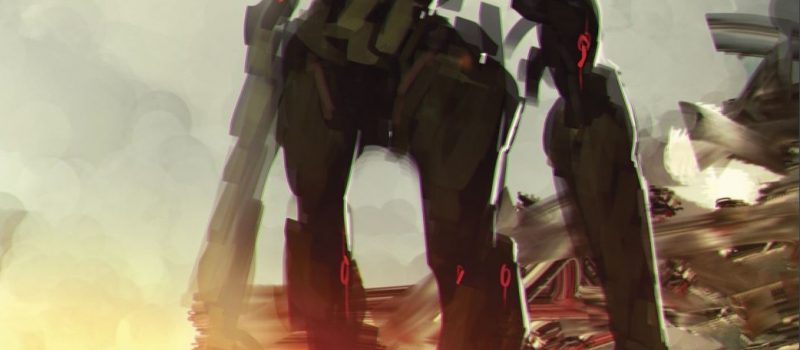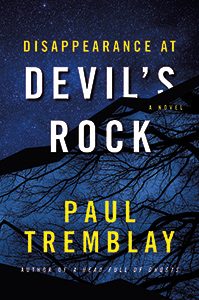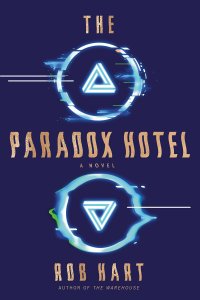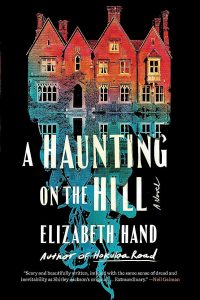Gardner Dozois reviews Short Fiction
Clarkesworld 2/17, 3/17, 4/17, 5/17
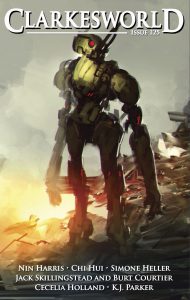 The best story in the February Clarkesworld is “Assassins” by Jack Skillingstead & Burt Courtier, which makes good use of a clever idea: an assassin who “kills” popular characters in computer games rather than people in real life – something that eventually leads her to be targeted by a rival who wants to do the same thing to her, or, rather, to her avatar. It’s smoothly and expertly told, a nice twist on the usual cyberpunkish assassin story. “How Bees Fly” by Simone Heller, is one of those stories that tries to make you think it’s a fantasy, only to eventually turn out to be science fiction instead (although there are few experienced genre readers who won’t figure out what the “demons” are almost from the beginning). The story is about a villager in a harsh and unwelcoming post-apocalyptic world who becomes “contaminated” by contact with the demons and so is exiled from the shelter of the village to almost certain death outside, and who must thereafter reluctantly join forces with the demon family in order to have a chance of survival. It ends on a note of hope – perhaps a bit hollow, considering the state of the world as portrayed. “Rain Ship” by Chi Hui is an odd far-future story, the protagonists of which seem to be some sort of rats who have evolved to human-level intelligence and developed a society of their own millions of years after humans have mysteriously disappeared. Surrounded by immense (to them, as they are still rat-sized – something I find a bit unlikely) remains of human civilization, they have followed the human example by expanding their civilization into space. Now a crashed but still mostly intact human starship has been found on a distant world, and several groups are vying to explore it and exploit it in different ways. Most of the rest of the story is a fairly standard action tale as the groups fight it out for control of the human ship, but the background is intriguing, and the difference in physical scale between rats and humans, as seen from the perspective of the rats, is used to good effect throughout.
The best story in the February Clarkesworld is “Assassins” by Jack Skillingstead & Burt Courtier, which makes good use of a clever idea: an assassin who “kills” popular characters in computer games rather than people in real life – something that eventually leads her to be targeted by a rival who wants to do the same thing to her, or, rather, to her avatar. It’s smoothly and expertly told, a nice twist on the usual cyberpunkish assassin story. “How Bees Fly” by Simone Heller, is one of those stories that tries to make you think it’s a fantasy, only to eventually turn out to be science fiction instead (although there are few experienced genre readers who won’t figure out what the “demons” are almost from the beginning). The story is about a villager in a harsh and unwelcoming post-apocalyptic world who becomes “contaminated” by contact with the demons and so is exiled from the shelter of the village to almost certain death outside, and who must thereafter reluctantly join forces with the demon family in order to have a chance of survival. It ends on a note of hope – perhaps a bit hollow, considering the state of the world as portrayed. “Rain Ship” by Chi Hui is an odd far-future story, the protagonists of which seem to be some sort of rats who have evolved to human-level intelligence and developed a society of their own millions of years after humans have mysteriously disappeared. Surrounded by immense (to them, as they are still rat-sized – something I find a bit unlikely) remains of human civilization, they have followed the human example by expanding their civilization into space. Now a crashed but still mostly intact human starship has been found on a distant world, and several groups are vying to explore it and exploit it in different ways. Most of the rest of the story is a fairly standard action tale as the groups fight it out for control of the human ship, but the background is intriguing, and the difference in physical scale between rats and humans, as seen from the perspective of the rats, is used to good effect throughout.
The most affecting story in the March Clarkesworld is Naomi Kritzer‘s “Waiting Out the End of the World in Patty’s Place Cafe“, which is about just what it says it’s about. The fantastic element here is slight, about how society deals with the knowledge that Earth is about to be hit by a dinosaur-killer asteroid that will likely wipe out all life on the planet. I’ve seen this scenario dealt with before a few times in recent years, and Kritzer doesn’t bring any startling new twists to it, but she’s very good at handling the emotional end, the human reactions and interactions as a random assortment of characters gather in Patty’s Place Cafe in a small town in South Dakota to wait out the clock on the end of the world. By the end, the story is quite moving. “Two Ways of Living” by Robert Reed, also in March, tells the story of the rather glum life of a man who alternates between long stretches of hibernation and waking periods in which he stuffs himself with food to prepare for the next bout of hibernation. There doesn’t seem to be any particular reason given as to why he lives this way. He doesn’t seem to be trying to extend his life to live long enough for science to have found a cure for a fatal disease, the usual reason given for hibernating in most science fiction stories, nor does he seem to derive any sort of enjoyment from a lifestyle which is portrayed as claustrophobic, dull, and achingly lonely. One can only assume that he does it because he wants to cut himself off from the world to the greatest extent possible without actually dying.
“Sunwake, in the Lands of Teeth” by Juliette Ward is the strongest story in an otherwise somewhat weak April Clarkesworld. In some ways, this is an old-fashioned story, about a human mission trying to get along with aliens with an elaborate class structure, and the dangerous cultural misunderstandings that can arise between them all when they’re not saying exactly what they think they saying. Reminiscent of Poul Anderson or C.J. Cherryh in the elaborate social structures it develops for its alien civilization, it delivers one of the fundamental pleasures to be had from reading science fiction in the first place. “Conglomerate” by Robert Brice, also in April, shows a group consciousness wrestling with the problem of expelling one individual component of their shared mind from the group, and the effect that has on the rest of the components.
The best story by far in the May Clarkesworld, and one of the best Clarkesworld has published all year, is “We Who Live in the Heart” by Kelly Robson. Longer than stories in Clarkesworld have tended to be, this tells the story of malcontents who grow tired of living in underground colonies in an alien planet that consists mostly of vast oceans, and who opt instead for a more adventurous and much more uncertain life by taking control of and moving into what amount to immense organic submarines, enabling them to roam the seas at will, but also meaning that they must live in constant danger of losing control of their “ship.” The worldbuilding here is fascinating, as is the intricately worked-out detail of how the living “submarines” function and how it would be possible, to some degree at least, to control them, but the human relationships among the crew are equally complicated and equally compelling. By the end, the story has generated a great deal of suspense, as events show that their whole way of life may be insupportable. Nick Wolven‘s “Streams and Mountains” is also good, about Park Rangers watching over a group of sasquatches in a reserve set aside for them in Pacific Northwest – but nothing here is quite what it seems, and some thorny ethical questions are raised before the story is through.”
Gardner Dozois was the editor of Asimov’s Science Fiction magazine for almost twenty years, and also edits the annual anthology series The Year’s Best Science Fiction, which has won the Locus Award for Best Anthology more than any other anthology series in history, and which is now up to its Thirty-Fourth Annual Collection. He’s won the Hugo Award fifteen times as the year’s Best Editor, won the Locus Award thirty-one times, including an unprecedented sixteen times in a row as Best Editor, and has won the Nebula Award twice, as well as a Sidewise Award, for his own short fiction, which has been most recently collected in When the Great Days Come. He is the author or editor of more than a hundred books, including a novel written in collaboration with George R.R. Martin and Daniel Abraham, Hunter’s Run, and, in addition to many solo anthologies, the anthologies, Songs of the Dying Earth, Warriors, Dangerous Women, and Rogues, all co-edited with George R.R. Martin, the last two of which were New York Times bestsellers. Coming up is a major solo fantasy anthology, The Book of Swords. He has been inducted into the Science Fiction Hall of Fame, and won the Skylark Award for Lifetime Achievement in Science Fiction. Born in Salem, Massachusetts, he now lives in Philadelphia, Pennsylvania.
This review and more like it in the September 2017 issue of Locus.


